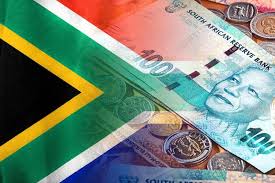The South African rand opened slightly stronger on Wednesday morning as anticipation built around a crucial parliamentary vote on key budget legislation that could shape investor confidence and influence local market sentiment.
By 07:20 GMT, the rand had appreciated by 0.1%, trading at 17.6950 against the U.S. dollar, modestly up from Tuesday’s closing figure. The currency’s movement reflects cautious optimism among traders as lawmakers are set to deliberate and possibly approve the first major components of South Africa’s revised 2024/2025 fiscal budget.
The vote is viewed as a critical milestone following months of political back-and-forth within the country’s coalition government. Delays in passing the budget had stirred concerns over the country’s fiscal discipline and reform agenda. However, Finance Minister Enoch Godongwana’s third version of the budget, presented last month, appears to have addressed most coalition disputes, making passage more likely.
Analysts say a successful vote would inject short-term confidence into South Africa’s markets by providing greater clarity on public spending, deficit targets, and debt management for the remainder of the year. This could positively impact local asset prices, including bonds, equities, and the rand itself.
Meanwhile, investors are also watching for the South African Chamber of Commerce and Industry (SACCI) Business Confidence Index, scheduled for release at 09:30 GMT. The index offers a snapshot of business sentiment and can serve as a near-term indicator of private sector outlook and investment appetite.
On the global front, market sentiment remains tethered to two developments: U.S.-China trade relations and the upcoming U.S. inflation data. The dollar gained 0.2% in early trade against a basket of major currencies after the U.S. and China concluded trade talks in London. While officials announced a “framework agreement,” it was short on specifics, leaving markets uncertain but hopeful for continued diplomatic engagement.
The U.S. Consumer Price Index (CPI) figures, expected later today, are another pivotal factor for traders worldwide. A hotter-than-expected inflation print could affect expectations around future U.S. Federal Reserve rate decisions and global capital flows—factors that also weigh heavily on emerging market currencies like the rand.
Despite the rand’s slight recovery, South Africa’s benchmark 2035 government bond reflected investor caution, weakening slightly in early trading. The yield rose 4.5 basis points to 10.115%, signalling higher risk premiums as the market awaits both the budget vote outcome and inflation cues from abroad.
South Africa’s fiscal credibility has been under pressure due to rising public debt, underperforming state-owned enterprises, and sluggish economic growth. A positive budget vote would be viewed as a step forward in rebuilding market trust, especially in the run-up to further coalition negotiations and policy implementations.
Market watchers will continue to assess local political stability, macroeconomic data, and international monetary trends, all of which are influencing the rand’s current trajectory. For now, a cautiously firmer rand suggests that investors are hoping for a stabilising outcome from Parliament—but with global inflation and geopolitical uncertainty in the background, the path forward remains far from smooth.
